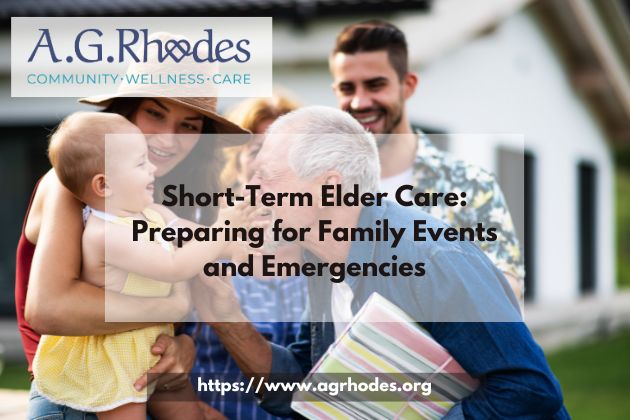
Understanding Short-Term Elder Care
Short-term elder care encompasses temporary caregiving solutions that address an individual’s medical, physical, and emotional needs for a limited period. It is often needed when families travel, host significant events, or handle urgent situations requiring additional assistance. These services range from in-home care to assisted living stays, offering flexibility based on specific needs.
Assessing the Level of Care Required
Determining the right level of short-term care is paramount. A thorough assessment of medical conditions, mobility limitations, and cognitive function guides decisions. Consulting with healthcare providers ensures that no crucial aspect of care is overlooked. Understanding whether assistance is needed with medication management, mobility support, or specialized health conditions helps families create a seamless plan.
Preparing for Family Gatherings with an Elderly Loved One
Family events should be an enjoyable experience for all, including elderly members. Selecting an accessible venue with ramps, railings, and comfortable seating is crucial. Dietary restrictions must be accommodated, with meals planned according to health requirements. Additionally, ensuring social inclusion by engaging the elder in conversations, games, or storytelling sessions enhances their emotional well-being.
Hiring Professional Short-Term Care Services
If family members are unable to provide full-time care, professional respite services, home health aides, or adult day care options offer relief. It is essential to evaluate providers based on experience, background checks, and patient compatibility. Asking about their ability to handle emergencies, administer medications, and provide companionship ensures peace of mind.
Coordinating Support from Family and Friends
Caregiving should never be a solo responsibility. By delegating tasks among relatives, families can create a structured caregiving plan. Assigning responsibilities such as transportation, meal preparation, and medication reminders lightens the burden. A shared caregiving schedule helps balance obligations and prevents burnout.
Emergency Preparedness for Elderly Care
Emergencies demand immediate action, and having a well-structured plan is non-negotiable. Families should keep a medical information sheet with current prescriptions, allergies, and physician contacts readily available. A designated caregiver should be briefed on recognizing signs of distress, such as sudden confusion, dizziness, or shortness of breath, ensuring prompt medical intervention.
Essential Supplies and Equipment for Short-Term Care
A well-stocked care kit prevents unnecessary stress. This should include mobility aids like walkers or wheelchairs, medication organizers to track dosages, and hygiene essentials. Comfort items such as familiar blankets, favorite books, or calming music help maintain a sense of normalcy, reducing anxiety.
Legal and Financial Considerations
Navigating legal and financial logistics is critical when arranging short-term care. Understanding insurance coverage for respite services and home health visits prevents unexpected expenses. Legal documents such as power of attorney, advance healthcare directives, and emergency contacts should be accessible to all designated caregivers to facilitate smooth decision-making.
Emotional Support for the Elderly and Caregivers
Transitioning into temporary care can be emotionally overwhelming for both the elderly and their caregivers. Addressing feelings of anxiety, fear, or sadness through open discussions fosters reassurance. Support groups, counseling, and mindfulness practices provide additional emotional stability during challenging times.
Post-Event Transition and Recovery
After an event or emergency, elders may require time to readjust to their routine. Gradual reintegration into daily activities, coupled with follow-up medical checkups, ensures continued well-being. Evaluating the effectiveness of the short-term care arrangement also helps in refining future caregiving strategies.
Conclusion
Proactively planning for short-term elder care minimizes stress and enhances the quality of time spent together as a family. Thoughtful preparation ensures that elderly loved ones remain safe, comfortable, and engaged while enabling caregivers to manage responsibilities effectively. By implementing structured care solutions, families create an environment where love and support thrive, even in the face of challenges.

